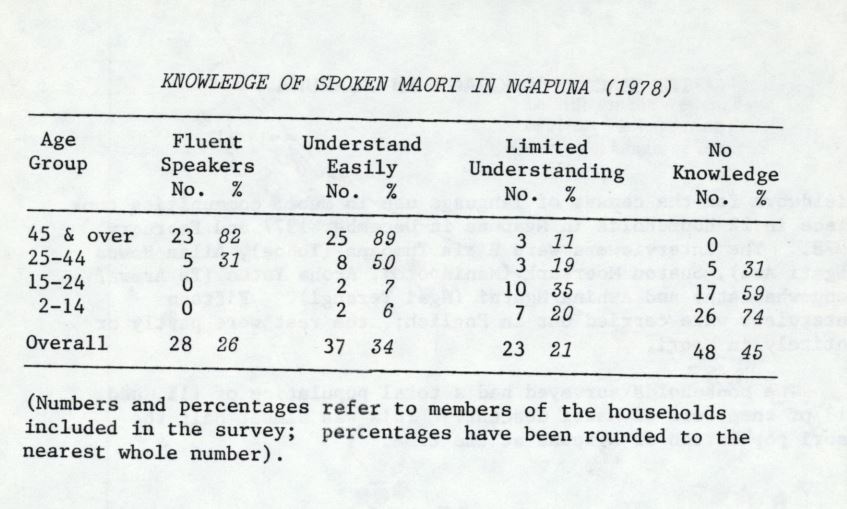-
Ngā Karere me Ngā Rauemi
News and Resources
Ngā Karere me Ngā Rauemi
News and Resources
-
Te Rangaihi Reo Māori
The Movement
Te Rangaihi Reo Māori
The Movement
-
Te Pae Kōrero
Our Community
Te Pae Kōrero
Our Community
-
Huihuinga
Events
Huihuinga
Events
-
Ngā Ara Ako
Learning Pathways
Ngā Ara Ako
Learning Pathways
-
SearchSearch
Search
Search

While some people in Ngapuna, especially kaumatua, were worried that fewer and fewer people knew and used Maori in the home and in the community, others couldn't decide whether Maori had any future or not. Although most adults surveyed spoke or understood Maori well, they hardly ever spoke the language with their own children. Some had tried teaching their children and mokopuna Maori, but felt they had no chance against English, which was almost the only language used on TV and radio, as well as in books and magazines in the household, which young people read. Several people said that as most New Zealanders were not interested in Maori, it was not surprising that hardly anyone thought it was a good idea to use the language in everyday situations. However, many people still wanted Maori taught in schools, especially at the primary level. But some people said it was already 30 years too late to teach Maori in schools. Maori had to be learned in the home, and should not be just another subject taught in the classroom.
Source: Read the full NZCER report here
Te Moana-ā-Toi | Bay of Plenty | Rotorua | 1970-79 | Story is by tangata whenua
















Comments